Driving “Revolution Korea” through AI
The “Economic Master Planner” at the Intersection of Policy and Innovation
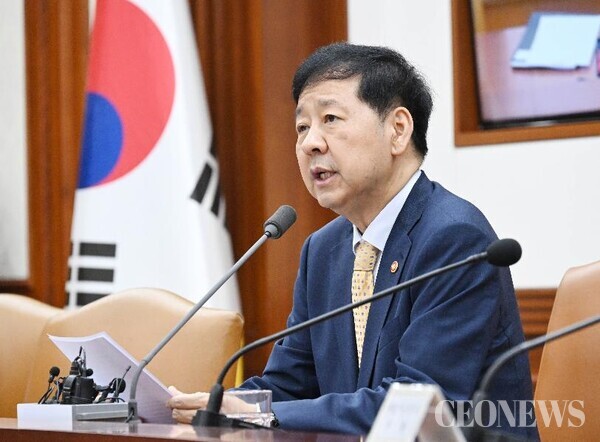
[CEONEWS = Lee Jae-hoon, Editor-in-Chief] In 1965, in Byeokjin-myeon, Seongju County, North Gyeongsang Province, a young boy was born in a small rural village—no one could have predicted that decades later, he would be called the “master planner” of South Korea’s economic policy. Deputy Prime Minister and Minister of Economy and Finance Koo Yoon-cheol, armed with a solid academic foundation and cross-administration expertise, now holds the helm at the triple intersection of policy, innovation, and technological transformation that Korea faces today.
From Daegu Yeongshin High School to Seoul National University’s Department of Economics, followed by an M.A. in Public Administration at Seoul National University, an M.A. in Public Policy at the University of Wisconsin, and a Ph.D. in Business Administration at Chung-Ang University, Koo is a scholar-bureaucrat who blends theory and practice. Passing the 32nd Higher Civil Service Examination in 1989, he cut his teeth in the Ministry of Finance and Economy and the Ministry of Planning and Budget, earning a reputation as a “budget expert.” He served as Presidential Secretary for Personnel Affairs and Director for State Affairs under the Roh Moo-hyun administration, as a Senior Advisor at the Inter-American Development Bank under the Lee Myung-bak government, and later as Director-General for Budget, 2nd Vice Minister, and Minister of the Office for Government Policy Coordination (OGPC) during the Moon Jae-in administration—solidifying his status as the “super-manager” of the bureaucracy.
Proven “Control Tower” Leadership as OGPC Minister
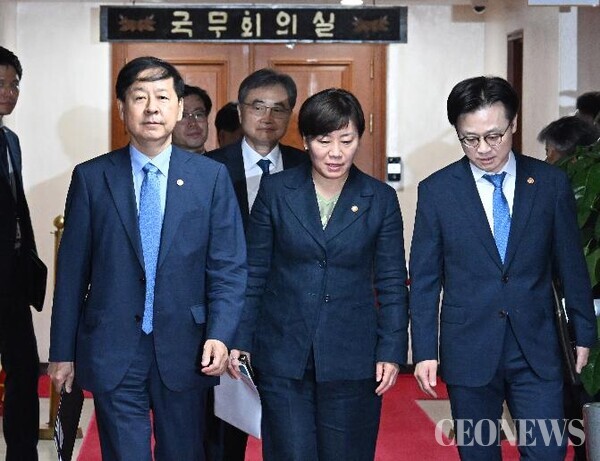
During his tenure as OGPC Minister under Moon Jae-in, Koo functioned as far more than a coordinator—he became the de facto control tower for national crisis management and inter-ministerial policy alignment. Amid the COVID-19 pandemic, he minimized conflicts between ministries over health and economic policy, swiftly designed fiscal support frameworks for quarantine measures, loss compensation, and vaccine procurement, and stabilized all three pillars. He also led South Korea’s carbon-neutral transition plan amid intense industrial, environmental, and labor disputes, launching the “Public-Private Green Transition Committee” to unite government, business, civil society, and local governments. Here, his philosophy of “field-driven policy design” shone brightly.
Koo’s credibility transcends political administrations. From key positions under Roh Moo-hyun to international assignments during Lee Myung-bak’s presidency and critical fiscal roles under Moon Jae-in, his career testifies to policy expertise beyond ideology or faction. The fact that Ministry of Economy and Finance staff named him “the boss they most want to emulate” for three consecutive years underscores his empathy-based leadership—a product of trust and communication rather than mere popularity.
Manifesto in Two Books: Revolution Korea and AI Korea
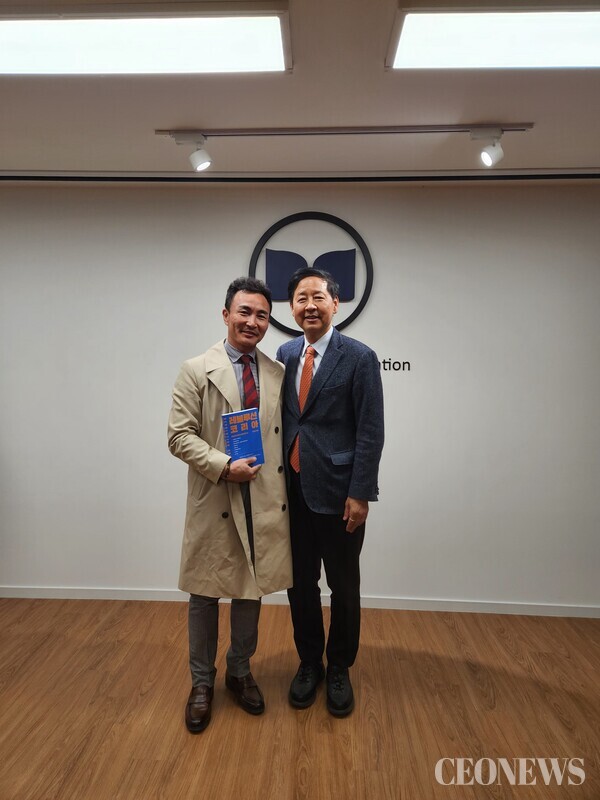
Koo’s policy vision is clearest in his books. In Revolution Korea, he redefines government as a “catalyst” for private-sector innovation, advocating deregulation, expanded tech investment, and global competitiveness as three strategic pillars. “Korea’s great revolution begins with the energy of the private sector” captures the book’s core philosophy.
In AI Korea, he positions AI not as a specialist’s domain but as a “life infrastructure technology” for all citizens. He calls for nationwide AI literacy education, leadership in AI ethics and security standards, and the establishment of AI data sovereignty. Warning that “AI inequality” could deepen social polarization, he proposes introducing AI across the public sector first to bridge gaps.
Tight Coordination with the Lee Jae-myung Administration’s AI Strategy
On June 29, 2025, President Lee Jae-myung nominated Koo as Deputy Prime Minister—officially for his policy expertise, but with a clear subtext: the administration’s “AI Transformation (AX) Initiative” aligned perfectly with Koo’s AI and innovation vision.
The government aims to propel Korea into the global top three AI powerhouses by focusing on AI semiconductors, robotics, and autonomous driving; dramatically increasing R&D budgets; and leading the establishment of international AI standards. Koo is expected to integrate his public-private AI ecosystem blueprint from AI Korea into this framework, designing joint technology-sharing projects between government agencies and private firms. His concept of “Corporation Korea” embodies this: barrier-free smart workplaces, field-based decision-making, strategic collaboration with other ministries, and tangible rewards for innovative ideas—transforming rigid bureaucracy into a private-sector-style innovation hub.
From Bureaucracy to “Economic Strategist”
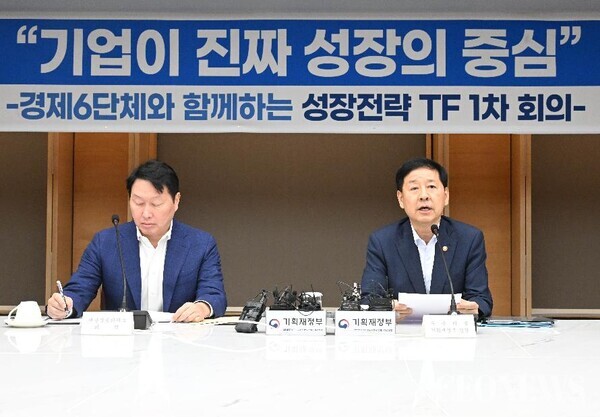
Koo’s differentiator is his commitment to field empathy in policy design. His belief that “the economy is about people, not numbers” reflects a determination to connect policy success with public perception. His apolitical expertise and consistent appointments across political shifts speak to both professional competence and organizational trust.
His “smart work,” “communication-centered,” and “performance-reward” strategies break the mold of traditional bureaucracy, pursuing productivity and creativity in tandem. Just as Revolution Korea envisions weaving private-sector ideas into public policy, Koo’s leadership thrives at the junction of business and government.
International Stage and Technology Sovereignty
Internationally, Koo emphasizes bridging the digital divide and securing technology sovereignty. His agenda ranges from expanding domestic AI education infrastructure to leading global AI norms and even hosting AI-focused international organizations in Korea. With prior experience negotiating at the Inter-American Development Bank, Koo is well-positioned to advocate for “AI data sovereignty” at G20 and OECD forums, potentially securing an edge for Korea in the competition to host global AI institutions.
Leadership for a New Economic Paradigm
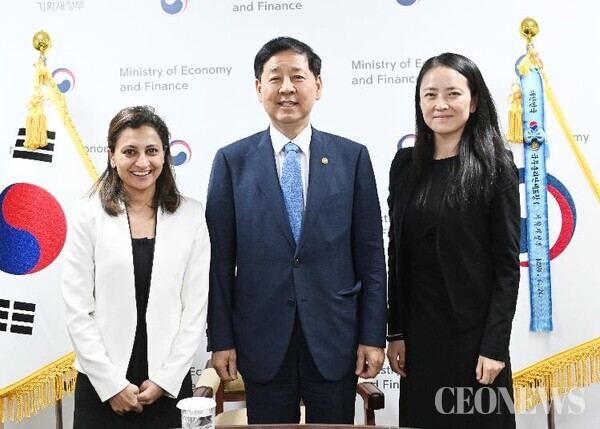
Koo Yoon-cheol’s leadership transcends administrative skill—it fuses strategy with execution, policy with innovation, and expertise with empathy. His proven crisis management, forward-looking vision, and alignment with the Lee administration’s AI agenda make him more than a bureaucrat—he is Korea’s “economic master planner.”
His declaration of “AI for all” reframes technology policy as a public good, potentially driving deep collaboration between the public and private sectors in AI semiconductors and robotics. The ultimate test will be execution: whether his mantra—“From idea to field implementation”—takes root across organizational culture, policy, and systems, and whether AI and innovation policies can deliver tangible benefits to citizens.
CEONEWS believes his next moves could be the inflection point for Korea’s economic paradigm shift. When policy, technology, and innovation align on a single axis, Koo Yoon-cheol stands at the very center.

